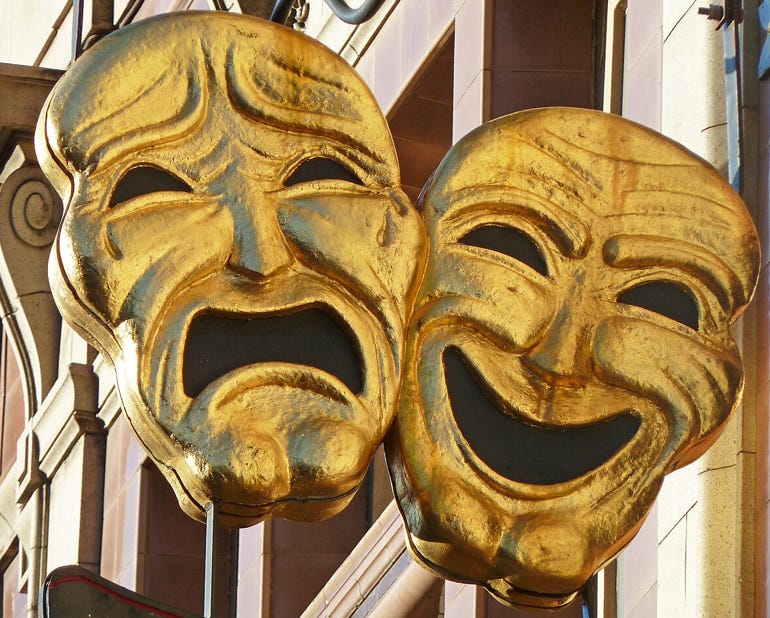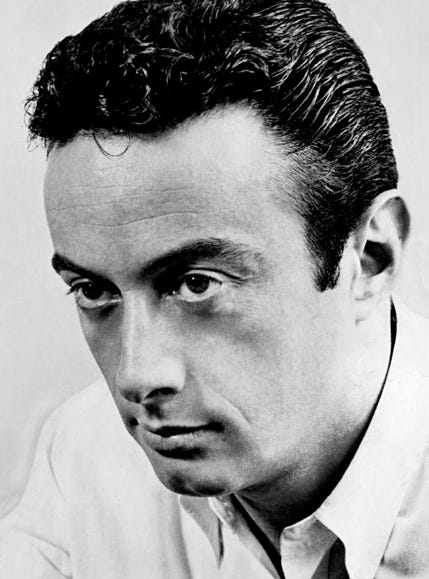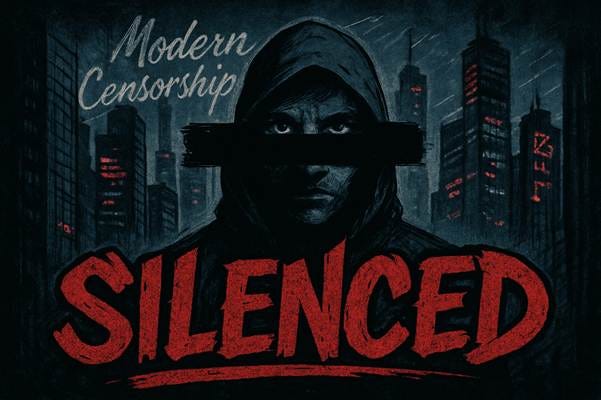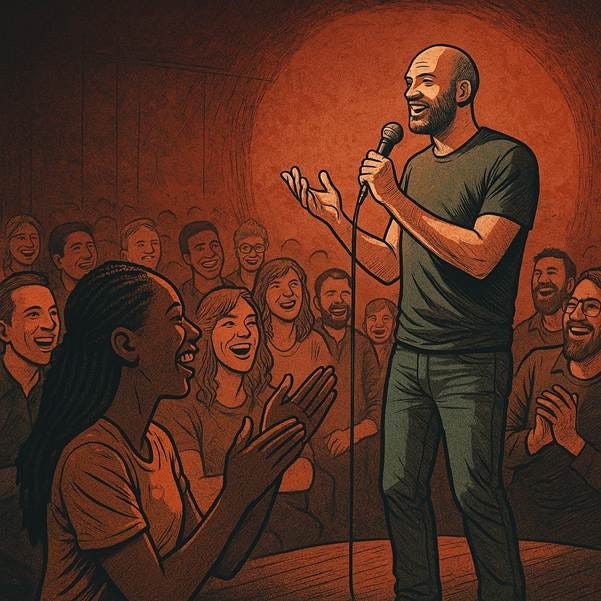"A society that has no space for laughter is a society that has begun to die."
They killed comedy. Not with bullets or bombs, but with something far more sinister: the stifling claws of ideological purity. What was once the safety valve of society, that subversive, boundary-pushing form of art that spoke truths too terrible for polite conversation, has been methodically neutered by the very people who profess to be champion progress.
We are witnessing the death of laughter, and the silence is deafening.
The Sacred Role of the Fool

To understand what we have lost, we need to first understand what the purpose of comedy is. In ancient Athens, comedy was more than entertainment, it was the sharpest implementation of democracy. Aristophanes held up a mirror to society's hypocrisy and “forced” the citizens to question what they thought to be true about themselves and their leaders. Aristophanes' comedies were rude, vulgar, and absolutely necessary.
A few hundred years later we have the medieval court jester. Clad in motley, only he could speak truth to the power without losing his head. The fool's honour was a way of keeping the social order in balance. When kings became too inflated, when nobles became too disconnected from reality, the jester would offer a much needed “correction”.
This was by design. Healthy societies have always acknowledged that comedy does indeed function as a pressure relief valve, a path to process tensions, a means to challenge those in authority, and maintain social cohesion through shared laughter. When comedy is silenced, something essential dies too.
The Lenny Bruce Precedent

In 1961, Lenny Bruce is standing under hot lights on a shabby stage in a ramshackle nightclub, sweating, pressing banal truths that make audiences squirm. His crime? Using words that polite society deemed unacceptable. The punishment for his crime was arrest, trial, and professional destruction.
Bruce's struggle was about the fundamental right to explore difficult topics through humour. Bruce understood that comedy had the potency to venture into forbidden territories; it had the ability to say what others were unwilling to say, or, even worse, what they wouldn’t want you to say.
Bruce's persecution revealed something crucial: those with power have always feared the subversion of comedy.
But here's the difference between then and now: Bruce faced opposition from traditional conservative authorities.
Today's censors wear the mask of progressivism, claiming to protect the vulnerable while strangling the very art form that has always given voice to the voiceless.
The New Inquisition
However, what we're witnessing today, is something more sophisticated than traditional censorship, and therefore much more dangerous. The new censors have no need for the backing of the government; they are far more insidious. They wield the power of social media mobs, corporate sponsors, and cultural gatekeepers.
They've weaponized empathy, turning comedy clubs into courtrooms where intent matters less than impact, where context is irrelevant, and where forgiveness is extinct.
Think about the ecology of comedy. There was a time when comedians aimed to step on toes, to make audiences uncomfortable enough to … make them think. Today, comedians operate in a world of calculus: Will this joke cost me my Netflix special? Will this bit end my career? Will this observation be seen as "problematic," whose standards will have changed by tomorrow?
Predictably, the comedy of our time is sanitized, focus-grouped, and essentially dishonest; we've traded incisive social commentary for approved talking points, dangerous truths for safe platitudes.
The jester's bells have been replaced by a machine hum.
The Chilling Effect
Self-censorship is the most potent type of control because it does not require forcing action.
When comedians adopt the standards of the digital mob, when they re-examine every line, or choose safety over truth, the censors win without firing a shot.
Dave Chappelle's most recent experience illustrates this perfectly. One of the greatest comedian voices finds himself defending basic jokes as if they were war crimes. The very fact we've arrived at a point where there's a debate about whether comedians should be able to joke about transgender people is a grim statement of how far we are from the comedy's original intentions.
Comedy has always laughed at everything and everyone. It is the universal “equal opportunity” offender.
When we begin to invent protected classes that can't be laughed at, we've changed the DNA of comedy itself.
And this is about power. The new censors have figured out that when they control language they can control thought. Comedy clubs have become re-education centres, where audiences are educated on what “laugh at” and more importantly, what “not to laugh at”.
What We Have Lost
The death of comedy is the death of a vital social mechanism. With the death of comedy, several things happen at once:
No more truth-telling. Comedy has always served as an early warning system for society - pointing out problems that will eventually develop into crises. Once comedy dies, we drift way too close to the crisis while flying blind.
The social fabric begins to unravel. Sharing laughter creates connections despite differences. When we cannot share laughter, we fragment into hostile tribes.
Power becomes unaccountable. With no jester to needle them, unchallenged, those in power quickly descend into farce and become the tyrants they always longed to be.
Stagnation of creativity. Comic competition is the best type of competition, as the best comedians drive their peers to innovate with language, thought and social commentary. Sanitized comedy yields sanitized thoughts.
The Rebellion Begins
There is something interesting happening though. The more limiting the culture becomes, the more desperate audiences have become for comedy.
Underground and alt-comedy scenes are flourishing. Comedians are bypassing the gatekeepers through podcasts, social media and direct-to-consumer platforms.
This is an act of cultural rebellion, as audiences are literally voting with their attention by sacrificing safety for “dangerous” laughter. Audiences are hungry to support comedians who are just as interested in saying what everyone else is thinking - but whom most of us would never say aloud. There's a reason for the success of a someone like Joe Rogan, who enjoys the luxury of maintaining his creative independence despite constant pressure, outside and within his profession.
Audiences want authenticity over approval. Audiences want comedians to take chances, to tread upon the uncomfortable. We want comedians to be jesters, than to become court scribes.
The Stakes
I do not want to sound melodramatic, but … the future of free expression in democratic societies is what is really at stake and not the future of comedy. Comedy is the canary in the coal mine of free expression. When it goes, intellectual freedom will soon follow.
The forces that are trying to kill comedy are not satisfied with controlling jokes, they want to control every discourse, and are using comedy as a stepping stone, an experimental trial, to set the precedent to develop the full apparatus of censorship. If they can successfully and full police humour, then they can police anything!
This is why the death of comedy matters and not just to people who appreciate entertainment. The inability for a society to laugh at itself and be self-reflective will eventually lose self-correcting abilities and will jeopardize self-governance.
The Choice in Front of Us
We are at a crossroad, where we can accept the death of comedy as part of progress, and buy into a humorous world where memes are risk-free, approved, and ultimately meaningless, or we can recognize that comedy's discomfort and willingness to challenge, provoke, and disturb is precisely why we want to keep it, in the first place.
Ultimately, we can choose between cruel 'comic' or kind 'comic' - the choice we have is honest, or dishonest, brave or coward, serving the truth or serving power.
The bells on the jester have grown quiet. The question is - will we let it fade away, or will we remember why we needed them in the first place?
The death of comedy is the suicide of civilization. And the cure is the courage to laugh again, even when - especially when - it might make us feel uncomfortable.






